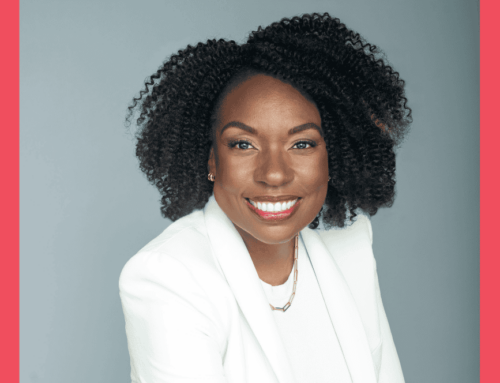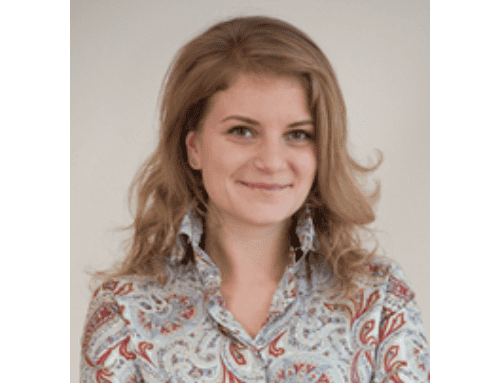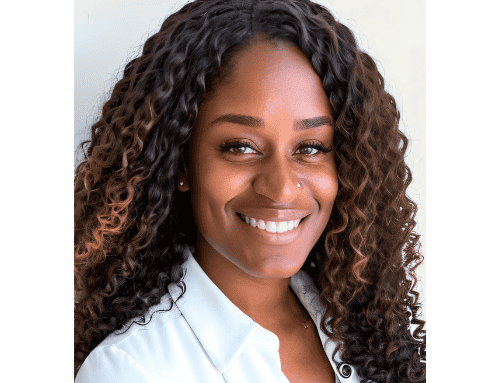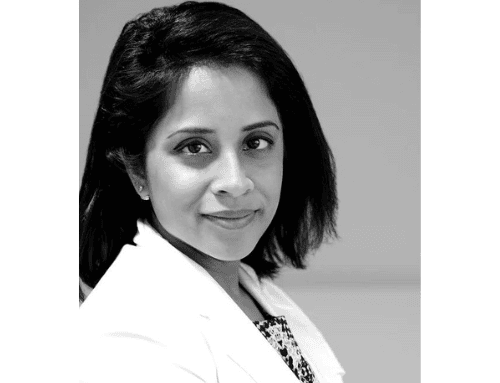With Simone Saunders, founder of The Cognitive Corner. Family violence refers to many kinds of abuse and neglect in families. Umbrella terms like this can be challenging. They cover a range of experiences, but they can obscure gender and power dynamics in their broadness. Women, girls, and Two Spirit, trans, and non-binary people face family violence at disproportionate rates that are only on the rise in Canada today.
Umbrella terms can also make it hard to envision how different people experience things differently depending on who they are. For example, survivors with disabilities have shared how abuse perpetrated by family caregivers tends to get ignored because, in popular imagination, we don’t always see how those who take care of us can also hurt us. 2SLGBTQIA+ survivors have shared how a family member’s threats of outing them to other family members can be used as a form of control.
These nuances of abuse are sometimes treated as mere add-ons. What if the devil is in the details? What if exploring nuances can unlock solutions that make millions of people safer?
Simone Saunders joins us to address family violence in racialized families. Simone is a graduate level Registered Social Worker and therapist in Calgary, Alberta. She is the founder of The Cognitive Corner—a group psychological practice that focuses on providing trauma-informed and culturally responsive psychological care and psychoeducation to Albertans and Ontarians. In the future, The Cognitive Corner seeks to provide accessible and affordable mental health services to racialized communities, due to the current lack of resources. Simone specializes in the treatment of early childhood trauma, racial trauma, and attachment-based issues, using a mixture of somatic-based modalities and critical theory to address societal/structural inequities. In addition, she is a mental health creator and advocate on Instagram and TikTok, where she aims to normalize mental health struggles and provide accessible psychoeducation.
A note about content: this episode includes discussion of family and gender-based violence.
Transcript
00:00:05 Simone
You can be in a relationship that is unhealthy, unhelpful, that includes family violence, which makes you scared, and there can be a part of you that is like, “well, I love these people, I love this person.”
00:00:22 Andrea
Family violence is a complicated, confusing experience. What’s it like for racialized survivors?
I’m Andrea Gunraj at the Canadian Women’s Foundation.
Welcome to Alright, Now What? a podcast from the Canadian Women’s Foundation. We put an intersectional feminist lens on stories that make you wonder, “why is this still happening?” We explore systemic routes and strategies for change that will move us closer to the goal of gender justice.
The work of the Canadian Women’s Foundation and our partners takes place on traditional First Nations, Métis and Inuit territories. We are grateful for the opportunity to meet and work on this land. However, we recognize that land acknowledgements are not enough. We need to pursue truth, reconciliation, decolonization, and allyship in an ongoing effort to make right with all our relations.
00:01:18 Andrea
Family violence refers to many kinds of abuse and neglect in families. It can happen against an intimate partner or against a child by a parent or a guardian. It can be elder abuse, sibling abuse, abuse by stepfamily, extended family, and more. It can be physical, sexual, emotional, mental – or a combination of all of the above.
I find umbrella terms like “family violence” challenging. They cover a range of experiences, and that’s helpful. But they can obscure gender and power dynamics in their broadness. Women, girls, and Two Spirit, trans, and non-binary people face family violence at disproportionate rates. Over the last few years, the rates have only increased in Canada.
Umbrella terms can also make it hard to envision how different people experience things in unique ways, depending on who they are. For example, survivors with disabilities have shared how abuse perpetrated by family caregivers tends to get ignored because, in popular imagination, we don’t always see how those who take care of us can also hurt us. 2SLGBTQIA+ survivors have shared how a family member’s threats of outing them to other family members can be used as a form of control.
These nuances of abuse are sometimes treated as mere add-ons. But one-size-fits-all approaches don’t work well for anyone. What if the devil is in the details? What if exploring nuances can unlock transformative solutions that make millions of people safer?
Simone Saunders joins us to talk about family violence in racialized families. Simone is a Social Worker and therapist in Calgary, Alberta. She’s founder of The Cognitive Corner—a group psychological practice that focuses on trauma-informed, culturally-responsive psychological care and psychoeducation. Simone specializes in the treatment of early childhood trauma, racial trauma, and attachment-based issues. She’s also a mental health creator and advocate on Instagram and TikTok, where she aims to normalize mental health struggles and provide accessible psychoeducation.
A note about content: this episode includes discussion of family and gender-based violence.
00:03:43 Simone
The premise of The Cognitive Corner is providing culturally-responsive and trauma-informed mental health care. We opened the doors to the private practice in 2021. Before that, The Cognitive Corner was a social media page. It started out as an Instagram page in 2019. Initially, the premise of it was just to provide psychoeducation because it was something that I saw that was really lacking, especially with people of colour. There wasn’t really that much mental health representation from people of colour, and so I thought that was really important. And it developed into a practice a few years later.
I didn’t anticipate an entire practice coming from social media. And I knew I wanted to do something within social services, human services, but initially I wanted to be a lawyer, which is, you know, completely different. And I found myself in social work. And so I think that’s kind of been the theme of my life – I will dip my toe into something and then I often find myself in these places where it’s something that I actually end up being extremely passionate about.
00:04:46 Andrea
Family violence can happen in any family. How does it uniquely show up in the lives of Black, Indigenous, and racialized people you work with?
00:04:53 Simone
As literature shows, we know that people of colour are generally more susceptible to family violence as well, and so that’s definitely something that I see in my practice. Oftentimes family violence can – different forms of family violence – can be sort of the norm in homes of colour growing up. And so that’s something that can definitely shape your mental health if that’s something that you’re privy to growing up when your brain is still developing or even in utero.
It’s difficult for your mental health because there’s this sense of being hyper-vigilant all the time and having to be hyper-vigilant. Whether it is, you know, parents screaming, yelling, arguing, whether it’s physical violence, whether it’s psychological abuse, financial abuse, all of these different things, when we’re privy to that from a young age, then we carry that throughout adulthood until we process it in some capacity.
Of course, family violence, especially with people of colour, has systemic roots and I see that a lot in my practice as well. And so I think that’s something that’s really important to address because at some point we can stop the cycle if we notice it and we have the courage to address it.
Black women especially are highly susceptible to family violence. My practice, I would say, is about 85% female-identifying folks. Especially with Black women, there’s the stereotype of strong Black woman. Stereotypes similar exist in different communities of colour. Because of those stereotypes, there’s an assumption that these types of women can handle more and internalize this, internalize this well.
I’ve talked to many clients who feel like, “okay, it could be worse… I could be being treated worse.” And it’s difficult because these stereotypes are put on these communities of colour, Black women or women of colour in general. There’s this feeling of, “okay, if it’s not that bad, then I have to stick it out.”
Women of colour are so used to bearing the brunt of a lot of different things it can feel like, “okay this is doable,” when it doesn’t have to be. That’s not a message that is communicated very often is that it doesn’t have to be terrible for you to walk away from something. It can be uncomfortable, and you can decide like, “hey, this isn’t for me.”
00:07:20 Andrea
What barriers to safety do you see with survivors you work with? What might get in the way of their getting help and support?
00:07:27 Simone
I would say the biggest thing that comes up is guilt of “okay, sure, I can walk away” or “sure, I don’t deserve to be treated like x, y and z.” But then there’s this guilt of: “What about the other person?” “What if I just should stick it out?” “Do I deserve to leave?” Because we might logically be able to know these things and I think that’s one of the largest things that I work on with folks – that you can logically know something, logically know that “I deserve to be treated better, I deserve respect, I deserve love,” and emotionally not feel that.
That discrepancy between your logical self and your emotional self causes the behavior of “okay, well, maybe I should just stay because sure, logically I know all these things, but emotionally I haven’t been taught that I deserve these things … I haven’t seen from other people who look like me that I deserve these things.”
Getting over that, I think, and processing that is huge. And processing the guilt of you’re allowed to leave, you’re allowed to move on from things that don’t work for you, that don’t serve you, that people that don’t appreciate you, or don’t love you in the way that you need to be loved. And it’s definitely very, very, very difficult.
00:08:45 Andrea
Which strategies help break those barriers? What do you do in your practice when you’re trying to help navigate traumas?
00:08:51 Simone
I find what resonates the most is kind of repeating back some of the things that they are saying in sessions. Because oftentimes we will talk and, especially in session, you’re just, you’re talking, you’re processing, you’re saying the things that are coming to your head, and a lot of times we don’t really stop to think about like, “okay, what I’m saying, this is a belief that I have in some capacity.” And so I like to slow down and stop and say, “okay, what I’m hearing you say is I just want to repeat back to you, like verbatim what you just said was: ‘I don’t feel like I can leave because it’s not that bad,’ let’s sit with that for a moment.”
And in sitting with the things that they’ve said, which identify kind of their core beliefs about who they are, how they operate in the world, what they deserve, I find that to be more powerful than any sort of affirmation that I could give them. I think the biggest thing I have learned throughout the years is that at the base of virtually any client or any person, I should even say, is that we all just want relationships with other people. We all just want to be accepted.
A lot of the roots of our core wounds is not being accepted or being made to feel like who we are isn’t enough in some capacity. Whether that’s through, you know, seeing people who look like us or people in our family being treated a certain way, whether it’s because we were treated a certain way, at the core of everything is that everybody wants to be loved and accepted.
And when that doesn’t happen and we have wounds because of that, it causes us to act out in a number of different ways. It’s really difficult to kind of combat that because most people are struggling with the exact same thing, but because of shame, it isolates us, and it makes us believe that “I’m the only person that’s struggling with this.” It causes that separation that we’re scared of.
00:10:55 Andrea
I wonder how you’ve seen racist stereotypes factor into the experience of racialized survivors.
00:11:00 Simone
I think in particular to people of colour, one of the biggest things that comes to mind is the fear of being a part of different stereotypes.
So if you think about Black women, for example, part of the stereotype of Black women is the angry Black woman – too angry, too loud, too x, y and z, too much. A part of family violence could be the person that you’re in a relationship with trying to perpetuate that stereotype, so: “see, all Black women are like this; see, all Black women are x, y and z.” And in not wanting to fit that stereotype and not wanting to fit that mold, you shrink yourself even if you have a very valid reason to be angry, very valid reason to be upset.
So there’s this kind of like suppression on different emotions that can be very, very cultural. That’s something that we don’t see, we don’t see, or talk about as often as we should, because these things can be very, very insidious.
Especially in relationships, I think we really need to think about, “okay, am I able to express myself the way that I am, of course without harm to another person, but can I be my biggest fullest self, and if I can’t, why?” And if that why is because “this person is intimidating me, this person is causing me to feel fear, this person is gaslighting me,” whatever it might be, then these are insidious signs that this relationship is probably not going in the healthiest direction.
00:12:38 Andrea
What makes a difference for those of us who are going through the shame and blame of it all, what tools and resources can we access?
00:12:46 Simone
I think it’s really about having open conversations and being vulnerable because I think the largest thing is shame keeps us in a lot of different relationships, keeps us isolated. And the more that we’re able to talk about what is happening, what is and isn’t okay, how you should be feeling in general in different relationships, the easier it is to combat that shame. Because two truths can exist. You can be in a relationship that is unhealthy, unhelpful, that includes family violence, which makes you scared, and there can be a part of you that is like, “well, I love these people, I love this person.” In acknowledging that those two truths can exist, and you can also choose yourself, and you can choose to leave, it kind of takes away some of the shame because I think that there’s a sense of you have to be completely unhappy, you have to dislike these people, this person, and then you can leave. But you can still feel love and decide to leave. And if you’re not being treated well, if you’re uncomfortable, if you’re just saying that like, “hey, this doesn’t work for me,” it’s also okay to leave.
But the more that we talk about it, the more that we can kind of unveil that shame. There’s so many tools out there and they’re amazing. But at the end of the day, I think what people really need is connection. So how can you build your own community? Whether that’s talking to your neighbors, talking to your friends, reconnecting with people, talking to your coworkers, whoever it is. I think at the end of the day, the biggest tool that we can have is building community because when we don’t feel alone, we feel more powerful.
00:14:31 Andrea
Alright, Now What?
Check out The Cognitive Corner on Instagram, TikTok and other social media.
Please listen, subscribe, rate, and review this podcast if you appreciate this content. Please consider becoming a monthly donor to the Canadian Women’s Foundation. People like you will make the goal of gender justice a reality. Visit canadianwomen.org to give today and thank you for your tireless support.






